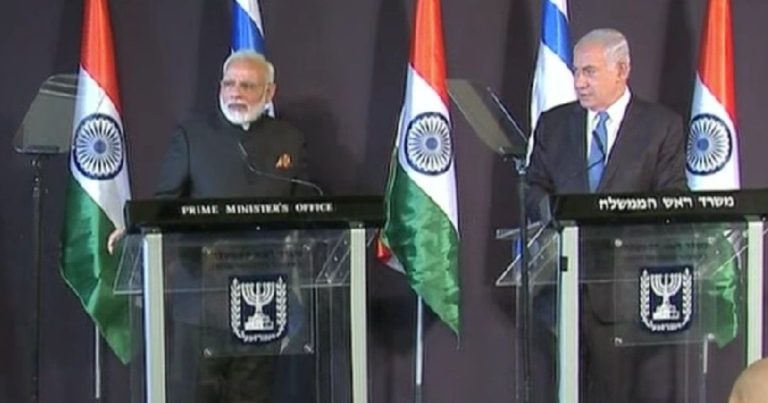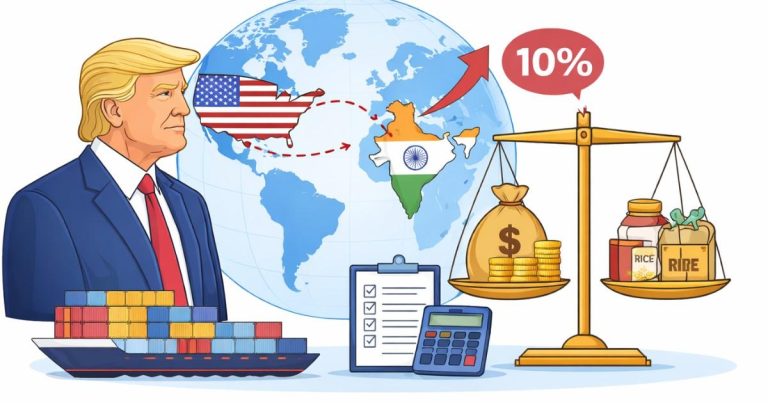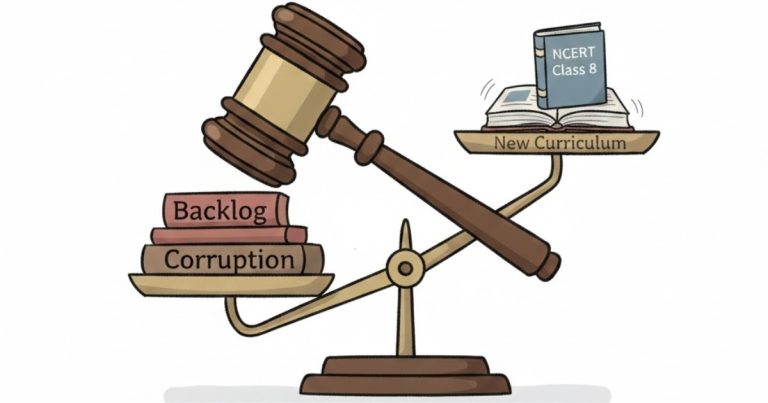On 9 September 2025, Israeli forces carried out an airstrike in Doha, Qatar, targeting senior Hamas political figures who were meeting in the Qatari capital. The strike — which caused explosions and smoke over parts of Doha — marked a sharp escalation because Qatar has for years hosted Hamas’ political office and has acted as a mediator in Gaza ceasefire talks. International media outlets report that a small number of people were killed and several others wounded; Qatar strongly condemned the attack as a breach of its sovereignty.
For India, the event matters for three clear reasons: diplomacy and mediation, energy and trade links, and the safety and welfare of the large Indian diaspora in Qatar. Each of these channels has immediate effects and longer-term implications for India’s foreign and economic policy. This article explains what happened, sets the factual context, and outlines measurable signals New Delhi and Indian businesses will be watching next.
What happened — quick, verifiable facts
- Multiple international news agencies reported explosions in Doha on 9 September 2025 and that Israeli forces said they struck a meeting of Hamas leaders. Qatar condemned the attack.
- The strike came while Qatari mediators and Hamas leaders were reportedly considering a U.S. ceasefire proposal for Gaza, raising immediate concern that talks could be derailed.
- The United States urged restraint and expressed concern about the location of the strike; the U.N. scheduled emergency consultations as regional condemnation spread.
These points are drawn from Reuters, the Associated Press and other established outlets reporting on the event and its diplomatic fallout. Where casualty counts are reported by agencies, those are cited in situ; readers should treat initial figures in breaking situations as provisional until official investigations and Qatari releases confirm final totals.
Why this matters to India: three concrete channels
1) Diplomacy and mediation: Qatar’s role is vital — and now riskier
Qatar has hosted Hamas’s political office for over a decade and acted as a back-channel mediator between Israel and Hamas — a role New Delhi and other capitals have relied on in past negotiations. An attack on Qatari soil directly complicates Doha’s ability to mediate and raises questions about the security of diplomatic activity hosted there. India, which has cultivated closer ties with Qatar (including a February 2025 upgrade to a strategic partnership), will look to protect both its own diplomatic channels and the broader regional push for negotiated pauses and humanitarian corridors.
Signals to watch: official statements from the Qatari government and the Gulf Cooperation Council; whether Doha withdraws or limits hosting of external actors; and any pause or rearrangement of ongoing ceasefire or hostage-release talks.
2) Energy and trade: Qatar is a major LNG partner for India
Qatar is one of India’s largest suppliers of liquefied natural gas (LNG). India imported roughly 10.6 million tonnes of LNG from Qatar in 2023, about half its total LNG imports that year — and Indian companies have long-term contracts with QatarEnergy and its buyers. Any sustained disruption to Qatari export operations, or to shipping and insurance routes in the Gulf, could affect supplies and prices for India’s gas market. New Delhi is already expanding LNG capacity and accelerating deals to diversify suppliers, but Qatar’s centrality means short-term market moves will matter for industry and households.
Signals to watch: statements from QatarEnergy and major buyers (Petronet, GAIL, IOC), LNG shipping and terminal operations, and spot LNG price movements. Reuters and energy think-tanks will likely track any logistical or contractual impacts.
3) Indian diaspora and consular safety: immediate welfare concerns
Roughly a million Indians live and work in Qatar in sectors ranging from hospitality and construction to professional services. In any security incident, India’s embassy and consular network must provide advisories, welfare support and, where necessary, evacuation or shelter instructions. New Delhi’s Ministry of External Affairs (MEA) issued statements urging restraint and diplomacy, and Indian missions in Doha typically publish travel advisories and safety guidance quickly in such events.
Signals to watch: MEA advisories, Indian Embassy (Doha) social posts and helpline updates, airline schedule changes, and official casualty lists if any Indian nationals are affected.
Wider regional and strategic implications for India
- Risk of wider escalation: An attack on Qatari territory raises the probability of diplomatic rifts across Gulf capitals—and could draw regional powers into sharper confrontation. India’s strategic calculus must balance its energy and migrant-worker interests with broader ties to the U.S., Gulf states, and Israel.
- Trade and investment planning: India and Qatar were reported to be near a trade framework and steps to deepen investment ties; disruptions could slow or complicate these plans, though economic incentives generally encourage both sides to limit economic fallout. Reuters reported that India was likely to finalise a framework for a trade pact with Qatar in October 2025 — a process that could be affected if diplomatic tensions remain high.
- Energy security strategy acceleration: A spike in regional risk may accelerate India’s diversification away from over-reliance on any single supplier — reinforcing moves to enlarge LNG import capacity and secure contracts from a wider list of producers. India’s plan to raise LNG import capacity and the trend of diversifying suppliers are part of that longer response.
What India can (and is likely to) do — a factual outline
- Public diplomacy and calls for restraint: India’s MEA has already expressed concern and urged restraint; this is consistent with India’s long-standing preference for de-escalation in the Gulf.
- Consular support: The Indian Embassy in Doha will publish advisories, provide emergency contacts and coordinate with Qatari authorities to protect Indian nationals. Past incidents in 2025 showed the embassy issuing shelter-in-place guidance when regional tensions rose.
- Economic diplomacy: New Delhi will keep trade and energy channels open while monitoring whether the security situation threatens contractual supplies or planned visits and negotiations. Reuters reporting on ongoing trade talks and earlier long-term LNG deals demonstrates how economic ties can proceed even as diplomacy works to stabilise politics.
Caveats and what we do not know yet
- Early reports about casualties and the precise targets of the strike have varied across agencies; final, authoritative numbers must come from Qatari official investigations and later confirmations. Journalists and readers should treat some initial casualty and damage figures as provisional.
- The precise effect on long-term LNG contracts and logistics will depend on operational statements from QatarEnergy and shipping firms; those outcomes are measurable and reportable but not yet final.
Bottom line: measured steps, watchable signals
The Israeli strike in Doha is an unusually direct escalation with immediate diplomatic and security consequences and clear implications for India’s energy and people-centric ties to Qatar. But its long-term impact on India will be determined by observable, verifiable developments in the days and weeks ahead: whether Doha can continue mediating, whether QatarEnergy’s export operations are affected, how quickly diplomatic channels calm tensions, and how India’s embassy and companies respond to protect nationals and supply chains.
Watch these specific signals next:
- Official Qatari releases and the findings of any probe into the strike.
- Statements by India’s Ministry of External Affairs and the Indian Embassy in Doha (for consular advisories).
- QatarEnergy and Indian buyers (Petronet, GAIL, IOC) for any changes in LNG scheduling or contract notices.
- Progress (or delay) on the India-Qatar trade framework discussions scheduled in the coming weeks.
Sources & further reading (selected)
- Reuters: “Israel launches attack on Hamas leaders in Qatar, blasts heard in Doha.”
- Associated Press: “Israeli strike in Qatar targets Hamas leaders as they weigh Gaza ceasefire proposal.”
- Reuters: “Reaction to Israel’s attack on Hamas leaders in Qatar.”
- Al Jazeera: “Why does Qatar host Hamas’s political office?” (background on Qatar’s mediating role).
- Reuters & industry coverage on India–Qatar energy and trade ties (Petronet, LNG statistics and planned trade framework).
- Indian media reporting on New Delhi’s response and consular advisories (NDTV, Times of India).
Also read;Enteromix: A Russian Cancer Vaccine That Stirs Hope
Last Updated on: Wednesday, September 10, 2025 3:52 pm by News Vent Team | Published by: News Vent Team on Wednesday, September 10, 2025 3:47 pm | News Categories: Politics




